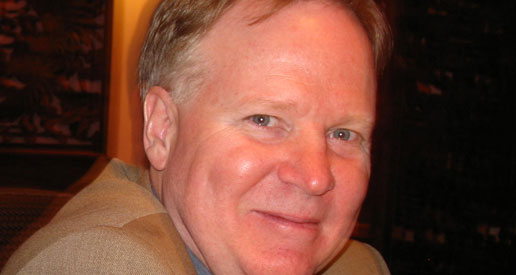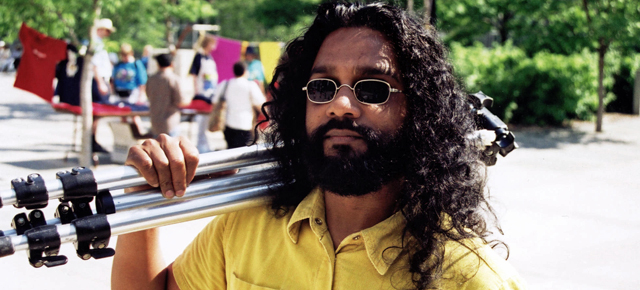Q&A with Producer Tom Berry, Part 1

Tom Berry formed Allegro Films in 1984 and it became one of the largest Canadian producers of feature films. In the ’90s, Allegro was merged with a publicly traded company, Coscient Group, now part of Quebecor. Berry has produced and executive produced more than 40 feature-length films. In 2001, he founded Montreal-based Premiere Bobine, which is active in the production, development, financing and distribution of feature films for television, video and theatrical release.
Berry is also a past Chairman of the Canadian Film and Television Production Association and received the Jack Chisholm Award for Entrepreneurial Excellence for lifetime achievement in the film and television industry.
These days, Tom Berry is going by the title Entertainment Executive but for many years he was a producer, both here in Canada and in the US (Los Angeles). He prefers his new title, because, as he says, “It really fits.”
His job is to supply programs to a group of buyers. He does this in a variety of ways, from coming up with a great idea and taking it into production to simply acquiring a package of films that are sitting in someone’s “library.” But his background is in writing, directing and producing and thanks to the several years I worked as his personal slave, he was more than happy to sit down and chat with me.
JM: How did you get into the film industry?
TB: I started out as a teenager determined to be a novelist. So I wrote a novel and a publisher in Toronto read it and was nice enough to explain the business to me. After his explanation, I realized that I wasn’t going to become enormously rich and irresistible to women after my first novel. It was going to be a long slog and I really didn’t like sitting alone in a room all that much. I wanted to do something collaborative, so I went to film school.
I’ve always enjoyed the technical aspect of filmmaking, and thought I’d be a cameraman or a cinematographer. But once I went to film school I realized that the default craft is writing, because all you need is a pen and paper. So I was writing a lot and I gave my work to other people to produce, but they kept screwing it up. So I decided to produce my own work.
JM: How did you get your first break?
TB: I had a number of lucky breaks. And a number of gift horses I looked in the mouth. I had some wonderful opportunities that I totally messed up.
In my opinion, going to a good film school was really important. It puts you in a group of very determined people who are going where you’re going and it gives you the start of a network.
One of the first things I did was make a documentary which was much beloved by someone at the NFB. It was in a cinema verité style, a documentary made from real things. All the subjects were speaking French. The visuals were very nice, but I didn’t speak French at all.
I had a French woman edit it for me and she explained the story to me at every stage. One of the people I showed it to was Peter Katadotis, who was at the Board at the time. He said, “Okay. I’ve got a job for you. Go make some community films in French.”
“Peter,” I said, “I don’t understand French.”
“Well, however you made that one, do it again.”
So I did. And while hanging around at the NFB, making tons of illicit photocopies, I managed to get the resources and equipment to start making my own movies.
JM: Can you talk about the role of a producer?
TB: The producer is the one who finds the project, gets the financing together, hires the director and puts the wheels into motion.
It’s a team sport. And the title of producer is thrown around with wild abandon. In order to be a successful producer, you have to learn more about yourself and have a realistic sense of what it is you can bring to the party. Then you build your career around that.
There are two parts to producing – the visionary/creative part, and the entrepreneurial part. It’s a left brain/right brain kind of thing. You need to have a creative vision and know how to handle the day-to-day business-like tasks that arise. You have to know which actor is right for a role, and figure out how to get equipment to clear customs.
It’s a big picture position.
[Note: The big picture thing is a lesson I learned from Tom at a very early stage. We were working on a production and one actor wanted a CD player in his trailer, or something trivial like that. I checked the contract and saw that he wasn’t promised one. So I went to Tom to ask what I should do. He told me, “You have to weigh the costs. Who cares if it’s in the contract or not? It will cost us $100 to go out and buy him a CD player, but how much will it cost us if he gets cranky about being ill-treated and refuses to show up on set tomorrow? Always think about the big picture.”]
Coming up: On Monday, I’ll publish Part 2 – how projects are developed, the advantages to working in the Canadian film industry and Tom’s advice for aspiring filmmakers.


